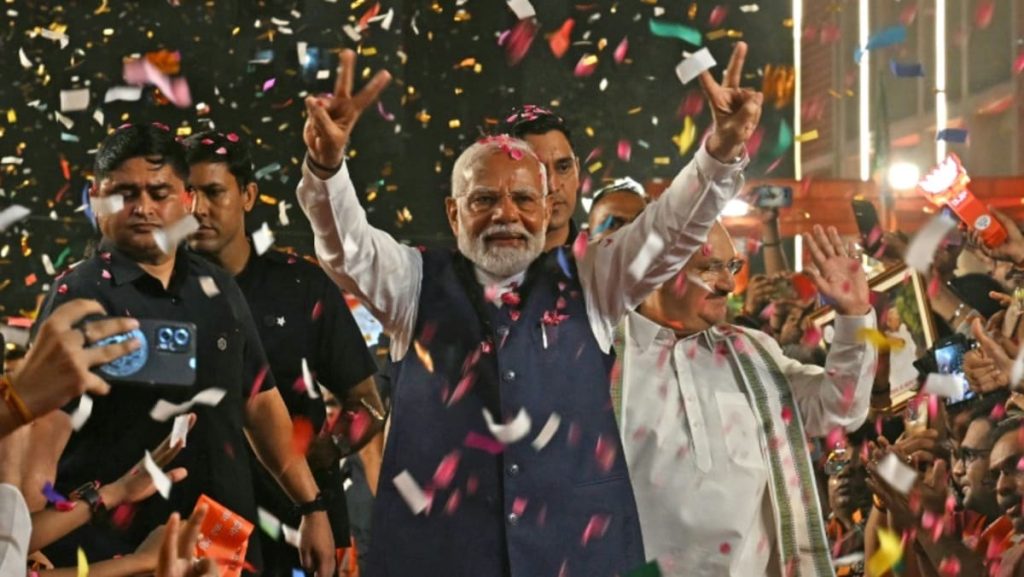The recent Indian parliamentary elections yielded surprising results, with the ruling Bharatiya Janata Party (BJP) falling short of a majority. Prime Minister Narendra Modi’s party only secured 240 seats, well below the 303 they won in the previous election. This outcome marks a significant change in the Indian political landscape, with the main opposition Congress party making gains and nearly doubling their seat tally from 2019. Political analysts suggest that Modi will now have to navigate the complexities of coalition politics to govern effectively.
Leading up to the elections, Modi faced criticism for allegedly targeting opposition figures and marginalizing the Muslim community in India. Despite these controversies, the BJP’s disappointing performance at the polls signals a shift in public sentiment. According to Christophe Jaffrelot, a professor at King’s College London, Modi’s reduced strength in parliament reflects a changing dynamic in Indian politics where he will need to engage in coalition-building to secure support for his policies. This marks a new phase in Modi’s political career as he adapts to a more diverse and fragmented political landscape.
Congress party president Mallikarjun Kharge described the election results as a clear rejection of Modi’s leadership and political strategy. The BJP’s setback has been interpreted as a personal and moral defeat for Modi, signaling a loss of public confidence in his governance style. The Congress party’s improved performance suggests a growing frustration among voters with the current government’s policies and actions. This shift in voter sentiment towards the opposition reflects a broader desire for change and a more inclusive, representative government.
Despite the BJP’s electoral setbacks, Modi was re-elected in his constituency of Varanasi, though with a smaller margin of victory compared to the previous election. This indicates that while there may be reservations about the BJP’s performance at a national level, Modi still maintains some level of popularity among voters in his home region. However, the overall results of the elections point to a wider discontent with the direction of the country under Modi’s leadership. Analysts suggest that voters are increasingly concerned about issues such as social polarization, rights protection, and economic inequalities.
Political scientist Ashutosh Varshney interpreted the election results as a reflection of a growing demand for the defense of constitutional values and citizen dignity in Indian politics. The rise of animosities and divisions in society, along with concerns about individual rights and social inequalities, have played a significant role in shaping voter preferences. This suggests that the concept of the “idea of India” is evolving, with citizens seeking a more inclusive and equitable society. The elections have highlighted the importance of upholding democratic principles and ensuring that all citizens are heard and represented in the political process.
As Modi faces the challenge of forming a coalition government, he will need to engage with a diverse array of political parties and stakeholders to build consensus and drive his policy agenda forward. This new phase of Indian politics marks a departure from the dominance of a single party to a more collaborative and inclusive approach to governance. The results of the recent elections have underscored the need for Indian leaders to listen to the concerns and aspirations of their citizens and work towards a shared vision of a democratic, prosperous, and just society. Only by playing the coalition game effectively can Modi navigate the complexities of contemporary Indian politics and fulfill the expectations of the electorate.


